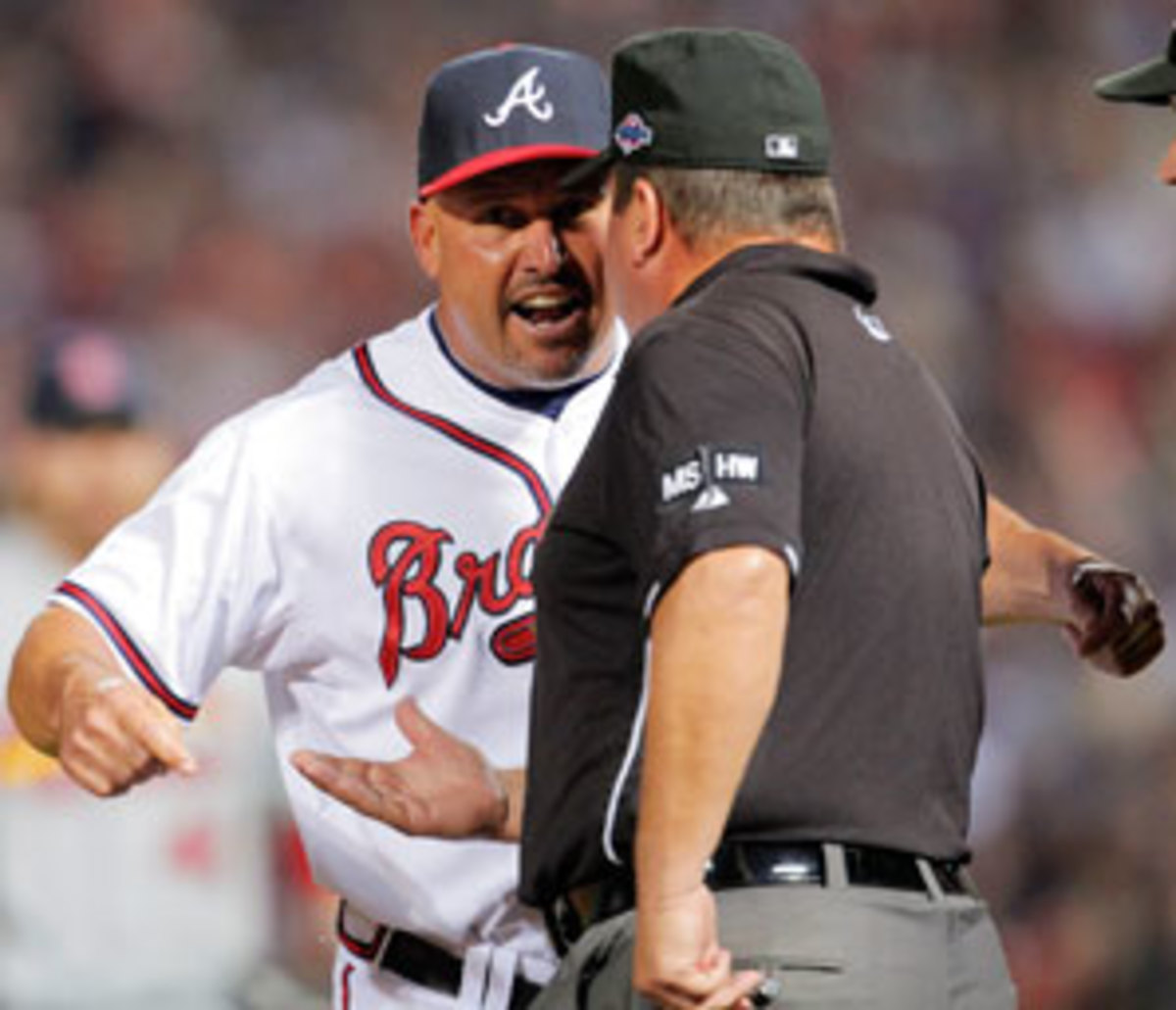How much did controversial infield fly call cost Braves?

The Braves and Fredi Gonzalez were enraged -- and one out closer to elimination -- after Sam Holbrook's controversial call. (AP)

Friday night's affair between the Braves and Cardinals will always be remembered as the Infield Fly Rule Game, as the obscure rule and the vague way it can be defined led to a long delay as fans voiced their frustration by littering the field with various objects. However, while the call certainly changed the atmosphere of the stadium and helped the Cardinals escape with a victory, the Braves did more to lose that game than the umpires.
When Andrelton Simmons came to the plate in the bottom of the eighth inning, Atlanta trailed 6-3 and there was already one out. Even with two men on base, the historical averages suggested that the Braves only had a 13.4 percent chance of winning. Simmons hit a pop up to shallow leftfield that Cardinals shortstop Peter Kozma and leftfielder Matt Holliday converged on. Kozma called for it, then backed away at the last second and the ball fell untouched. It appeared the Braves would have the bases loaded with one out but leftfield umpire Sam Holbrook called for the infield fly (see the rule here), declaring Simmons out.
The Braves still had two runners on but they had one less out to work with in their season. Their win expectancy dropped to 9.1 percent, but if the umpires had never called for an infield fly, it would have risen to 22.7 percent, so the ruling swung the Braves chances of winning by 13.6 percent. It's a significant play, certainly, but the Braves had already dug their own grave when the call was made.
In the fourth inning, Chipper Jones' throwing error on a potential double play lowered the team's win probability from 69.9 percent to 58.6 percent, a 11.3 percent swing that was immediately followed by Allan Craig's RBI double, which pushed the team's chances of victory down to 44.4 percent. In the span of two batters, the Braves lost 25.5 percent of their win expectancy, and the rally could have been entirely avoided had Jones simply made a better throw to second base.
Then, in the bottom of the fourth inning, the team frittered away a golden opportunity to get the lead back. After a pair of singles had put runners at the corners, the Braves' win probability was up to 50.9 percent, making them the slight favorites even though they trailed 3-2 at the time. However, the decision to have Simmons lay down a safety squeeze, on which he was consequently called out for interference, dropped the team's chances of winning back down to 41.8 percent, and then allowing the Kris Medlen to strike out and end the rally dropped it down to 35.2 percent. The Braves lost 15.7 percent of their win expectancy by asking their No. 8 hitter to bunt with a man on third and the pitcher on deck.
Both of these sequences were more harmful than the infield fly call, and the Braves also committed two other errors that knocked their win probability down by a combined 8.7 percent. Between the three errors, the botched squeeze, and the decision to let Medlen hit in a crucial situation, Atlanta shed 29.2 percent of its win expectancy without any help from the umpires. The reality is that even had the disputed call gone the Braves' way, they still would have lost that game three out of four times because of all the mistakes they made leading up to the eighth inning.
-- By Fangraphs.com Staff
